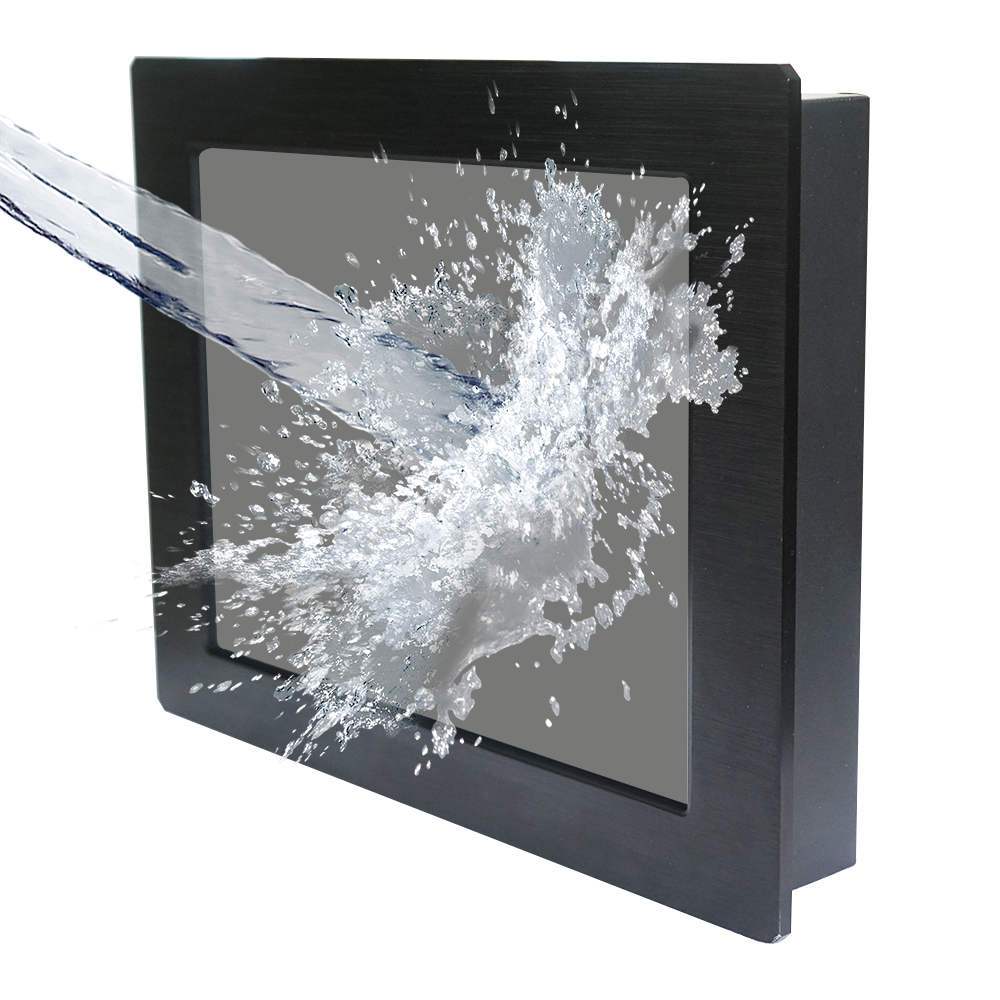What should I look for when choosing a waterproof touch screen monitor?
When it comes to selecting a waterproof touch screen monitor, there are several important factors to consider. Whether you're looking for a monitor for outdoor use, industrial environments, or any setting where exposure to liquids is a concern, finding the right waterproof touch screen monitor is essential. In this article, we will provide you with a comprehensive guide on what to look for when choosing a waterproof touch screen monitor to ensure you make an informed decision.
IP Rating:
The first and foremost consideration is the IP (Ingress Protection) rating of the monitor. The IP rating indicates the level of protection against water and solid particles. Look for a monitor with a high IP rating, such as IP65 or higher, which ensures resistance to water jets and dust ingress.
Touch Technology:
There are various touch technologies available for touch screen monitors, including resistive, capacitive, and infrared. Consider your specific requirements and the intended use of the monitor. Capacitive touch screens, for example, provide excellent responsiveness and multi-touch capabilities, making them suitable for applications that require precise touch inputs.
Display Quality:
Evaluate the display quality of the monitor, including factors like resolution, brightness, and contrast ratio. A high-resolution display with vibrant colors and good contrast will enhance the visual experience, especially in outdoor or brightly lit environments.
Durability and Construction:
Since the monitor is intended to be waterproof, it is crucial to assess its overall durability and construction. Look for a monitor that is built with robust materials, such as ruggedized enclosures or tempered glass, to withstand harsh conditions and potential impacts.
Viewing Angles:
Consider the viewing angles of the touch screen monitor. A wide viewing angle ensures that the screen remains visible and easily readable from different positions or when mounted at varying heights.
Connectivity Options:
Check the available connectivity options of the monitor. It should have the necessary ports, such as HDMI, VGA, or USB, to connect with your devices or systems. Additionally, assess if it supports any specific communication protocols required for your intended application.
Touch Accuracy and Responsiveness:
The touch accuracy and responsiveness of the monitor play a vital role, especially if you require precise touch inputs. Look for a monitor that offers high touch accuracy, quick response time, and supports multi-touch gestures if needed.
Mounting and Installation:
Consider the mounting options and installation requirements of the touch screen monitor. Determine whether you need a monitor that can be wall-mounted, panel-mounted, or used with a specific mounting system based on your application and available space.
Customization and Additional Features:
Some waterproof touch screen monitors offer customization options or additional features tailored to specific industries or applications. Examples include sunlight-readable displays, anti-glare coatings, anti-reflective treatments, or compatibility with gloves for certain environments.
Warranty and Support:
Finally, ensure that the manufacturer provides a reliable warranty and after-sales support. A reputable company will stand behind their product and offer assistance in case of any issues or queries that may arise.
Conclusion:
Choosing the right waterproof touch screen monitor requires careful consideration of factors such as IP rating, touch technology, display quality, durability, connectivity options, touch accuracy, mounting options, and additional features. By thoroughly evaluating these aspects and aligning them with your specific requirements, you can select a monitor that meets your needs and delivers reliable performance in wet or challenging environments. Remember to choose a reputable manufacturer to ensure quality, warranty, and ongoing support for your investment.
333
0
0


Comments
All Comments (0)